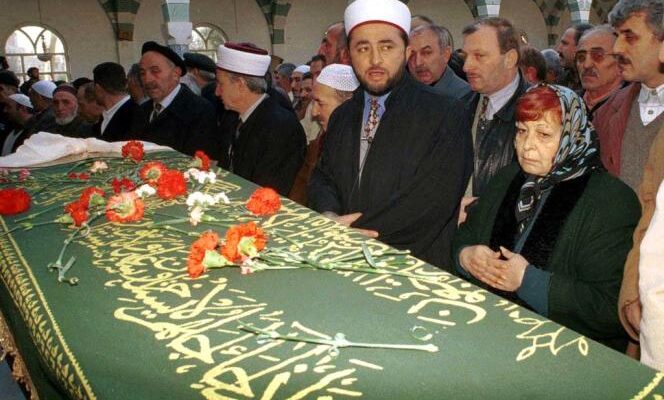LETTER FROM ISTANBUL
Konca Kuris was one of the women who lived closest to one of the most dramatic and bloody episodes of the “dirty war” which engulfed the Kurdish regions of Turkey in the 1990s, characterized by the employment of death squads, extrajudicial killings and disappearances.
She was an author and Islamist activist known for her feminist views. She had dared to challenge orthodox Islamic teachings on women and insisted that women’s rights had a place in Islam. She herself was veiled, but she fought so that Muslim women could have the choice to wear the headscarf or not. Nothing in the Koran, she repeated, required them to do so. Konca Kuris died of it.
Abducted in July 1998 by members of Turkish Hezbollah, a Kurdish radical Islamist group born in southeastern Anatolia, her body was discovered a year and a half later under a concrete slab in a house in Konya. The police operation, at the time, had made it possible to find several dozen other corpses buried in the four corners of the country. Videotapes, recovered by investigators, revealed that Konca Kuris had resisted pressure and torture from her captors for thirty-five days before being executed. A pig gut was allegedly used to strangle him.
Nicole Pope, our correspondent at the time of the facts will write: “Several of the victims were Islamist businessmen, mostly Kurdish, kidnapped over the past months. Members of rival organizations, former [du] Hezbollah who had tried to leave the movement or Muslims who did not share the brutal interpretation of Islam advocated by the organization are also among the victims. » And then this: “The extent of this extremist organization, little known to the general public, and the brutality of its methods shocked the country. »
A spiral of horror and blood
A quarter of a century later, the name Konca Kuris reappeared. It was a few weeks ago. When President Recep Tayyip Erdogan’s formation, the Justice and Development Party (AKP), announced its decision to form an alliance with the Hüda Par (“part of God”) in the May 14 elections. This formation (0.3% in the 2018 elections) is considered a political continuation of Hezbollah, a sort of legal showcase. Its leaders, they deny any link with the organization. Two of them, including the vice-president, were however on an official delegation to Wiesbaden (Germany), at the end of April, in a mosque known for having organized, several years in a row, commemorations in honor of the leader of the movement, Huseyin Velioglu, shot dead by police in January 2000, shortly before the gruesome discoveries.
You have 52.06% of this article left to read. The following is for subscribers only.
